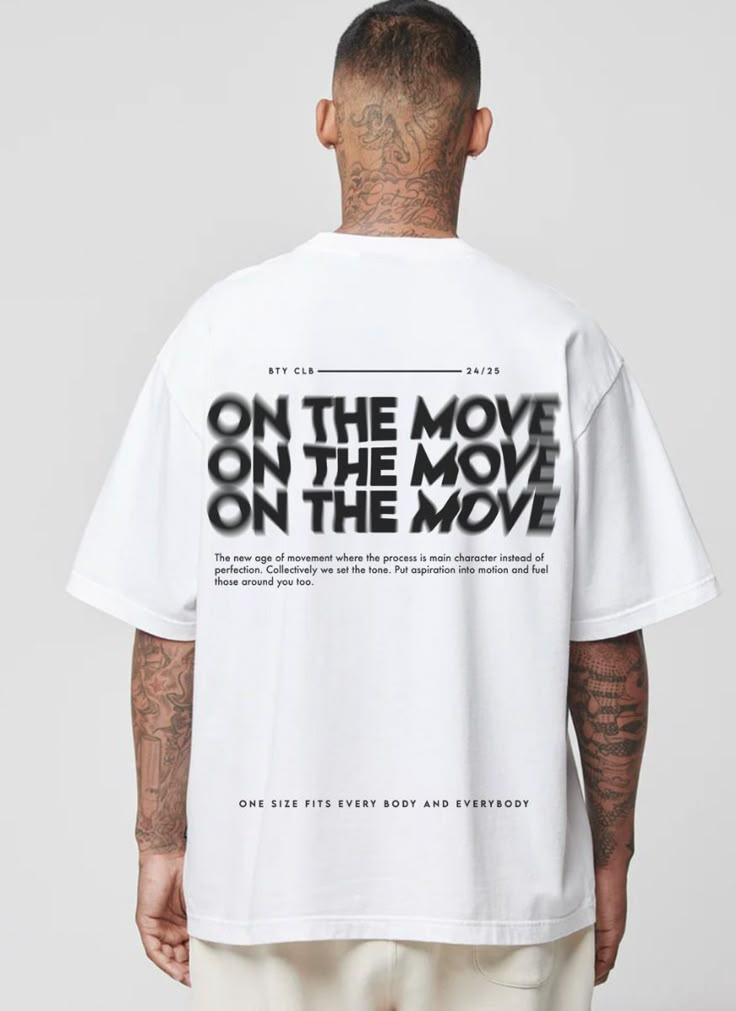
All-Day Street Style: The Most Comfortable T-Shirts of 2025
Graphic tees have long been a staple in fashion, merging art and self-expression with everyday wear. As we step into 2025, these iconic pieces continue
Sustainability has become a core focus in the fashion industry, with eco-friendly clothing gaining significant traction. Among the most sought-after items, sustainable T-shirts stand out as a versatile and environmentally conscious choice for consumers. As we enter 2025, innovations in fabric technology, ethical production methods, and consumer awareness are shaping the way we perceive and purchase clothing.
This article explores the latest trends in sustainable T-shirts, materials making a difference, the role of technology in eco-friendly fashion, and how brands are leading the way toward a greener future.
Sustainable fashion has evolved tremendously over the past decade. What once seemed like a niche market has now become mainstream, with both independent brands and major retailers embracing eco-conscious practices. T-shirts, being a wardrobe essential, have played a crucial role in this transformation.
Brands have shifted from using conventional cotton and synthetic fibers to organic and recycled alternatives. Additionally, ethical labor practices and transparency in the supply chain have become key factors for consumers when selecting sustainable options.
The materials used in sustainable T-shirts are at the heart of their environmental impact. Several innovative fabrics have emerged as game-changers in 2025.
Organic Cotton: Unlike traditional cotton, organic cotton is grown without harmful pesticides and uses significantly less water. It offers the same breathability and softness while ensuring minimal environmental damage.
Hemp Fabric: Known for its durability and biodegradability, hemp requires fewer resources to cultivate. It grows quickly, replenishes soil nutrients, and produces strong fibers that make T-shirts last longer.
Bamboo Fiber: Bamboo grows rapidly without the need for chemical fertilizers or excessive water. T-shirts made from bamboo are naturally antibacterial, moisture-wicking, and incredibly soft against the skin.
Recycled Polyester: By repurposing plastic waste, recycled polyester reduces landfill accumulation and ocean pollution. Advances in textile technology have made this material as comfortable as virgin polyester but with a much smaller ecological footprint.
Tencel (Lyocell): Made from sustainably harvested wood pulp, Tencel is an eco-friendly fabric known for its breathability and silk-like texture. The closed-loop production process minimizes waste and chemical usage.
Sustainability isn’t just about materials—it also involves ethical production methods. Many fashion brands are prioritizing fair wages, safe working conditions, and minimizing waste throughout their supply chains.
Fair Trade Certification: Ensuring that workers receive fair compensation and work in ethical environments has become a priority for many sustainable clothing brands. Consumers increasingly seek Fair Trade-certified products when shopping for T-shirts.
Zero-Waste Manufacturing: Innovative techniques such as 3D knitting and fabric optimization reduce waste by ensuring that every piece of material is used efficiently. Brands are also repurposing textile scraps into new garments.
Waterless Dyeing: Traditional fabric dyeing consumes vast amounts of water and releases harmful chemicals into the environment. Waterless dyeing technologies, such as air-dyeing, minimize pollution while achieving vibrant colors.
Technological advancements are revolutionizing sustainable fashion, making eco-friendly T-shirts more accessible and innovative.
Biodegradable Fabrics: Scientists are developing fully biodegradable fabrics that decompose naturally without leaving behind microplastics or harmful residues.
Blockchain for Transparency: Consumers are demanding greater transparency in fashion supply chains. Blockchain technology allows brands to track and verify every step of the production process, from raw material sourcing to the final product.
3D Printing in Fashion: Some brands are experimenting with 3D printing to create T-shirts with minimal waste. This method ensures precise material usage and customization, reducing excess inventory and fabric waste.
A growing number of brands are pioneering the sustainable T-shirt movement. Here are some of the leading names in 2025 that are making a significant impact.
Patagonia: Known for its commitment to sustainability, Patagonia continues to push eco-friendly innovations. Their T-shirts use organic cotton and recycled fabrics, and they promote a circular economy by encouraging customers to recycle old clothing.
Tentree: For every T-shirt sold, Tentree plants ten trees. The brand focuses on sustainable fabrics like hemp, Tencel, and organic cotton while maintaining ethical production standards.
Pangaia: Blending science and fashion, Pangaia creates biodegradable and recycled-fiber T-shirts infused with botanical dyes and antibacterial properties.
Everlane: Transparency is key for Everlane, which offers detailed insight into material sourcing and labor conditions. Their sustainable T-shirts emphasize quality, durability, and ethical production.
Sustainable T-shirts in 2025 represent a fusion of fashion and environmental responsibility. With advancements in fabric technology, ethical production methods, and increased consumer awareness, the demand for eco-friendly T-shirts is at an all-time high.
By choosing sustainable materials, supporting ethical brands, and embracing innovative fashion trends, consumers can contribute to a greener planet while staying stylish. As sustainability continues to drive the fashion industry forward, the future of T-shirts looks brighter and more eco-conscious than ever before.

Graphic tees have long been a staple in fashion, merging art and self-expression with everyday wear. As we step into 2025, these iconic pieces continue

Sustainability has become a core focus in the fashion industry, with eco-friendly clothing gaining significant traction. Among the most sought-after items, sustainable T-shirts stand out

As sustainability takes center stage in the fashion industry, discerning a truly eco-friendly T-shirt from misleading claims has become increasingly important. Consumers are now more